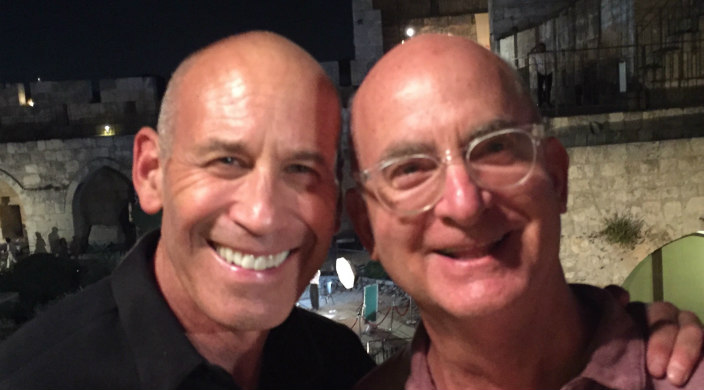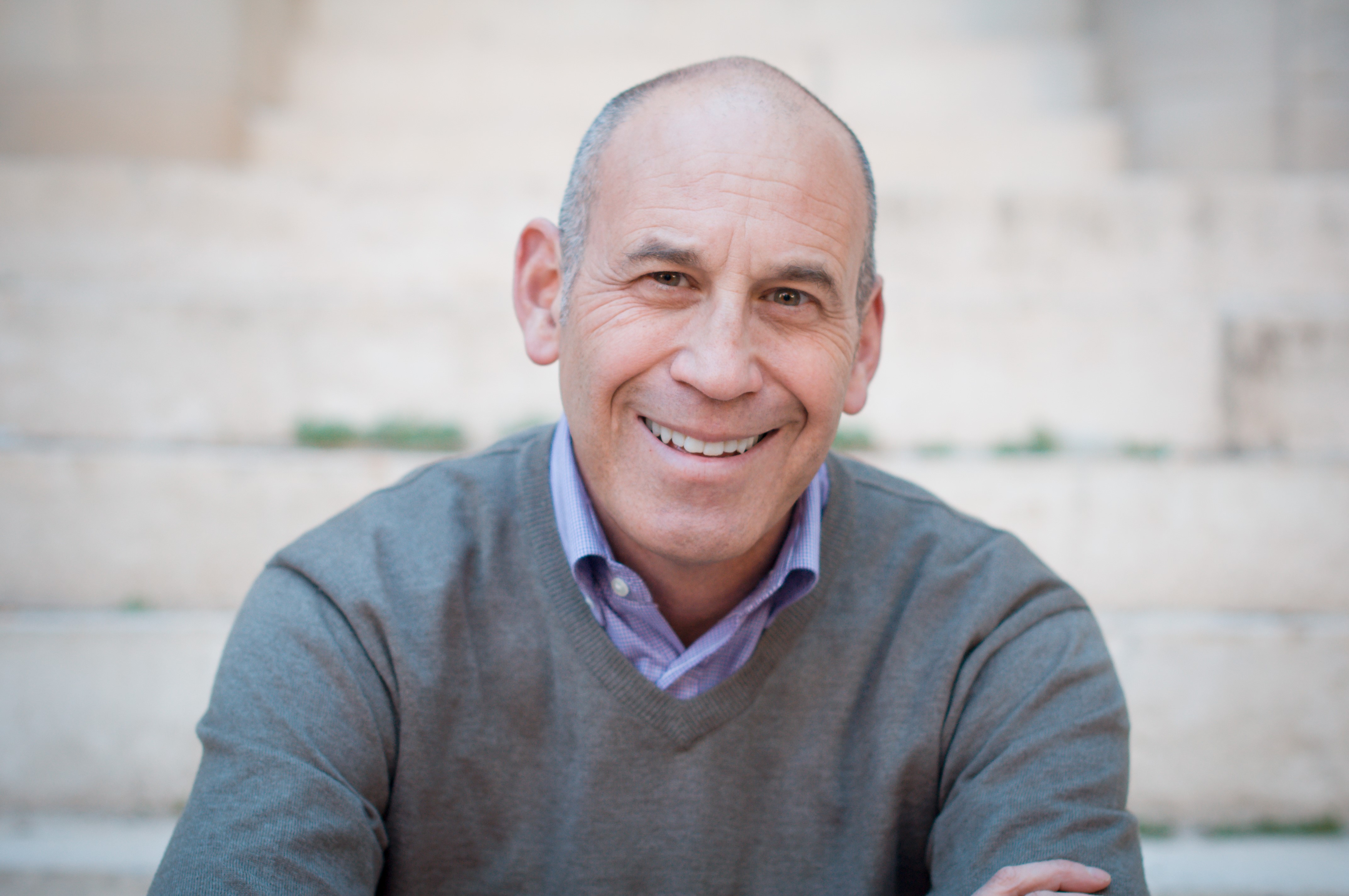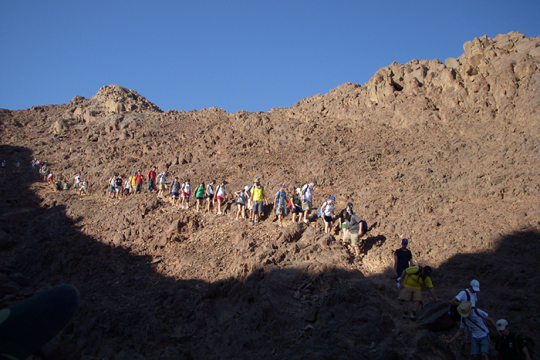
In July of 2013, my husband, Rabbi Don Goor, and I, together with our cat, Merlin, made . We moved from Los Angeles, where we had lived and worked at our respective synagogues for 25 years and began the process of creating new lives in our newly adopted home of Jerusalem.
The first year was a whirlwind of activity: meetings with immigration officials, setting up banking accounts, beginning work in new jobs, buying an apartment that we would later renovate, creating new friendships, learning to drive in Israel (six years later, I’m still learning to drive in Israel!), and for me, spending hours each week in .
Almost a year to the day of our first “aliyah-versary,” the 2014 war in Gaza began. Missiles were being launched from the Gaza Strip into Israel around the clock. Initially the missiles barraged the southern part of the country, but eventually, they began landing in Tel Aviv and the outskirts of Jerusalem.
Until then, the last time I’d heard an air-raid siren was as a fifth-grader at Timber Point Elementary School in East Islip, Long Island, where I grew up doing “duck and cover” drills. Perhaps native-born Israelis get used to the piercing wail of the air-raid siren announcing incoming missiles. But, as a new immigrant, I thought the sound was otherworldly. Their whine and wail are soul-piercing. Even though you know the sound means to run for shelter, it can be tough to do when immobilized by fear.
Some apartments have a “safe room,” one bedroom reinforced with steel and concrete. In our 1970s building, we hustle to the bomb shelter in the basement. If we’re driving, as happened to us once, we get out of the car and run to the nearest building in search of a stairwell or public bomb shelter. Another time we were in a high-rise building in Tel Aviv; once I was home alone and ran into the hallway.
At one point, I thought, “One more siren and I’m grabbing my laptop, a carry-on bag, and the cat and I’m out of here.” On the surface, though, I tried to appear stoic and brave. After all, wasn’t I now an Israeli? On the inside, however, I was so terrified that getting out of bed in the morning become a chore and traveling only a few blocks from home was difficult.
On my birthday in late July, two friends took me out for lunch. As I sat picking at my Caesar salad (Yes, Caesar salads are as ubiquitous here in Israel as in Los Angeles!), my friend Nancy said, “You need help. Don’t be ashamed. It’s a tough time.” She gave me the name of a counselor, and since she was right, I called and set up an appointment. This amazing psychologist (an American immigrant like me) reassured me that I was not the only one experiencing some sort of fear, anxiety, or trauma. In one of my early sessions with him, he asked me two simple, but important questions: “Why are you here in Israel? Why did you make aliyah?”
At that moment, I did not know my attempts to answer these fundamental questions were providing the groundwork for what would eventually become my one-man show “Shards: Putting the Pieces Together.” Slowly, slowly, I began to understand that as a member of a family of sojourners, immigrants, and wanderers, my journey from Los Angeles to Israel was not so dissimilar from that of my grandmother from Russia to New York. Indeed, my story and her narrative were intrinsically linked.
My status as an “oleh chadash” (a new immigrant in Israel) and my position as a linguistic and cultural outsider mirrored my grandparents’ experiences upon their arrival in their “new world.” Their newly adopted home in the East New York section of Brooklyn was decidedly different from the from which they had come, where Yiddish was their language of choice. Just as my grandmother’s accent gave her away as a Russian immigrant, my New York accent (much more apparent when I speak Hebrew than when I converse in English) betrayed my attempts to be a “real” Israeli. Although I try to “act” Israeli, I will always be an outsider here.
Through pictures, letters, documents, personal memories, and recollections, as well as my parents’ reminiscences, I re-created my grandparents’ journeys. My ancestors’ stories – their hopes, dreams, disappointments, and travails – became the basis of my show and are intertwined with my own stories. At each performance, I reacquaint myself with my grandparents and great-grandparents, and, truthfully, I know them better now, years after their deaths, than when they were alive. Through storytelling and song (with a couple of puppets as part of the mix) I attempt to express the perpetual quest to find out who we are, who we want to be, and who we hope to become.
Israel is an amazing place to live. We here in Eretz Yisrael (the land of Israel) are part of the most profound Jewish experiment in modern history: the recreation of a Jewish state. But it is not all milk and honey, hummus, falafel, and pita. Life here definitely has its challenges.
My grandparents never visited Israel – an unfulfilled dream for them – but when I hang out in my apartment, walk through the Old City, teach students at Hebrew Union College-Jewish Institute of Religion, or sit on my mirpeset (balcony) early in the morning, drinking coffee and listening to the sounds of Jerusalem awakening, I know my grandparents are with me. They guide me, they hold me, they sing with me, and they reassure me that yes, living here in Israel is the right decision.
I made aliyah – I moved to Israel – and they have all joined me on this journey.
For more information about Cantor Evan Kent’s one-man show “Shards: Putting the Pieces Together” and to find out about performances in your community, visit his website.



